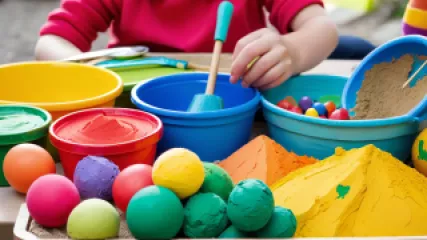Top 10 Play Therapy Activities for Child Mental Health Coaching
Play therapy is a powerful tool in child mental health coaching, allowing children to express themselves, explore their emotions, and develop important skills through play. It provides a safe and nurturing environment where children can engage in therapeutic activities that promote healing and growth. In this article, we will explore the top 10 play therapy activities that are highly effective in supporting child mental health coaching.
1. Sand tray therapy
Sand tray therapy is a popular play therapy activity that involves the use of a tray filled with sand and a collection of miniature figurines and objects. Children are encouraged to create scenes or stories in the sand using the figurines, which allows them to express their thoughts, feelings, and experiences symbolically. This activity enhances creativity, problem-solving skills, and emotional regulation.
2. Art therapy
Art therapy utilizes various art materials such as paints, markers, and clay to help children communicate and process their emotions. Through drawing, painting, and sculpting, children can externalize their internal world, explore their imagination, and gain insights into their emotions. Art therapy promotes self-expression, self-esteem, and emotional well-being.
3. Puppet play
Puppet play is an engaging play therapy activity where children use puppets to act out scenarios or role-play different situations. It provides a safe space for children to express their thoughts and feelings indirectly, allowing them to explore and resolve conflicts, develop empathy, and practice effective communication skills.
4. Therapeutic storytelling
Therapeutic storytelling involves the use of books, puppets, or visual aids to tell stories that reflect the child's experiences or address specific issues. It helps children identify with characters, explore different perspectives, and gain new insights. Therapeutic storytelling fosters emotional understanding, problem-solving abilities, and empathy.
5. Playdough therapy
Playdough therapy is a hands-on play therapy activity that involves molding and shaping playdough to represent feelings, experiences, or situations. It allows children to engage in sensory play while expressing and processing their emotions. Playdough therapy enhances fine motor skills, creativity, and emotional regulation.
6. Game-based therapy
Game-based therapy incorporates board games, card games, or interactive video games to engage children in therapeutic play. These games provide opportunities for social interaction, decision-making, problem-solving, and emotional expression. Game-based therapy promotes cooperation, emotional regulation, and social skills development.
7. Music therapy
Music therapy involves using music, such as singing, playing instruments, or listening to music, to support emotional expression and well-being. Children can create their own songs, participate in rhythmic activities, or engage in guided relaxation exercises. Music therapy enhances self-expression, emotional regulation, and communication skills.
8. Sensory play
Sensory play focuses on engaging the senses through activities like water play, sand play, or exploring different textures. It provides a calming and soothing experience for children while promoting self-regulation, attention, and sensory integration. Sensory play is particularly beneficial for children with sensory processing difficulties.
9. Drama therapy
Drama therapy encourages children to use dramatic techniques, such as role-playing, improvisation, or storytelling, to explore and express their emotions. It allows children to step into different roles and perspectives, enhancing their self-awareness, empathy, and problem-solving skills. Drama therapy also promotes social interaction and emotional regulation.
10. Nature-based therapy
Nature-based therapy involves connecting with nature through outdoor activities like gardening, hiking, or nature walks. It provides a calming and grounding experience for children, allowing them to develop a sense of connection with the natural world. Nature-based therapy promotes relaxation, self-reflection, and emotional well-being.
Play therapy activities offer children a safe and supportive space to explore their emotions, build resilience, and develop important life skills. Incorporating these activities into child mental health coaching can be highly beneficial in promoting emotional well-being and facilitating healing. Remember, each child is unique, so it's essential to tailor play therapy activities to their individual needs and preferences.






